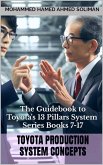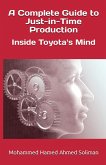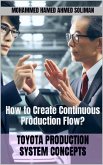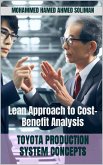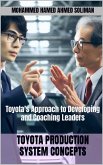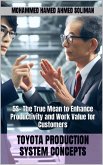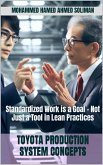Continuous flow aids in waste reduction. Because there is harmony and rhythm between each stage of the process, wastes are eliminated from the system. This enables each team member to provide value rather than produce waste. Processing waste is decreased because there is naturally less rework (or overprocessing), there is only as much work done as the customer is prepared to pay for, and there is only one accepted technique to complete the task (no bad processing). This book provides a workshop and complete guidance for how to create continuous flow cell.
Dieser Download kann aus rechtlichen Gründen nur mit Rechnungsadresse in A, B, CY, CZ, D, DK, EW, E, FIN, F, GR, H, IRL, I, LT, L, LR, M, NL, PL, P, R, S, SLO, SK ausgeliefert werden.



